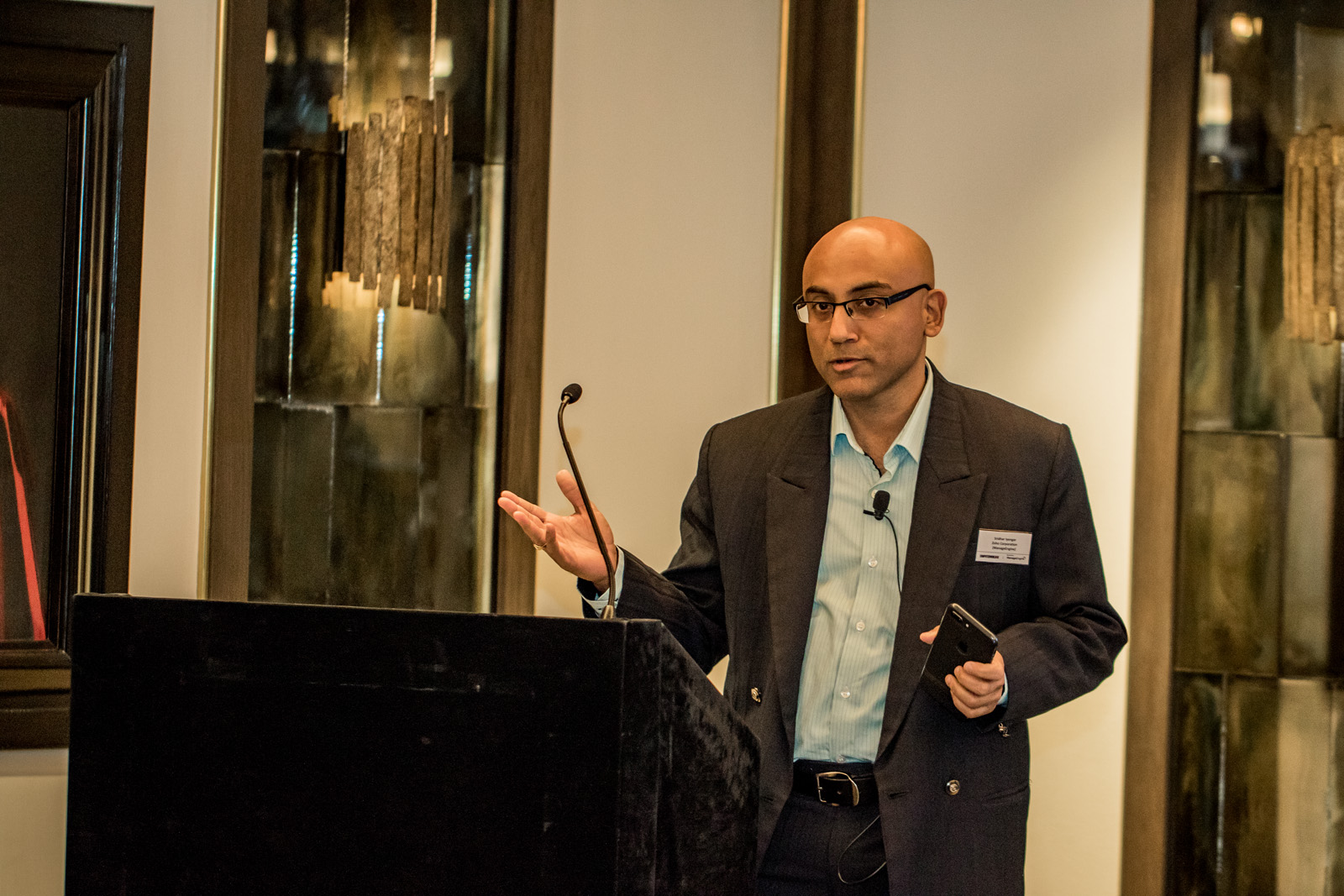CIO meetup: Tech leaders in London & Dublin believe business and IT teams "should speak the same language"
ManageEngine partnered with Mediateam Ireland and IDG UK to host our first round of CIO meetups on digital transformation in the region. These events were conducted at the magnificent Aviva Stadium in Dublin and the elegant May Fair Hotel in London.

In Dublin, discussions centered around the theme Can IT guide a business' journey through every step of the way?, with an expert panel consisting of Michelle Beeson, analyst at Forrester Research; John McIntyre, head of Analytics and Cognitive Services for Capgemini Sogeti Ireland; and Ashling Cunningham, CIO at Ervi. In London, we talked about building systems that enable constant, profitable change with an expert panel consisting of Gemma Milne, Cofounder of Science: Disrupt; Aline Hayes, head of systems, Lloyds Banking Group (LBG); and Graeme Howard, CIO at Santa Fe Relocation. To top it off, our very own Sridhar Iyengar, head of European Operations at Zoho Corporation, joined both these panels.
 Our panel at the Aviva Stadium, Dublin
Our panel at the Aviva Stadium, DublinEven the audience consisted of C-level professionals representing a diverse array of expertise, ideas, and global conglomerates.
There's more to digital transformation than simply upgrading to the latest technologyThe first event began on a brisk note, with a show of hands from the audience on whether they agreed with the opening statement of "digital transformation transcends technological updates." Many did.
Beeson highlighted the difference between digital transformation and a digital upgrade. She emphasised that although digital transformation looks like it's a one-time process, it's actually a continuous set of trials, assessments, and development across all business verticals.
Any tech revolution should be strongly backed by in-house support, who can build and employ sustainable solutions that will accelerate this change.
Will AI and ML replace humans?A good 10 percent of the audience confirmed that they have already begun using AI and ML for data intelligence and processing. Further, we received a multitude of audience questions around AI and ML, including what if the decisions made by these technologies were opaque and incomprehensible? McIntyre offered answers here, asserting that despite the race to develop technologies that employ AI and ML, there are certain principles, including the Asilomar Principles, that ensure and govern ethical development of these technologies. He also mentioned that with regulations like the European Union's GDPR, any kind of automated profiling and processing can be made transparent and comprehensible to the owners and controllers of data.
Adding to this, Iyengar indicated that AI and ML are merely meant to enhance data processing capabilities, and not to replace the technicians using these technologies.
Business and IT should be viewed as a single entityWhat if businesses ask for something that is beyond the capabilities of IT? This question brought many to the edge of their seats. Answering this, Beeson said that the line of separation between business and IT should fade.
Cunningham said all this comes back to how organisations prioritise their activities, time, and resources. “At the start of the year, demand will always outstrip supply, whether that is resources, or time, or whatever," she said. “It is about what criteria you use to determine what your investments are going to be, whether that is a project or a programme or a change in the organisation. Then it comes down to a bun fight in the organisation to see what gets done.”
 Our panel at The May Fair Hotel, London.
Our panel at The May Fair Hotel, London.Getting a data strategy in orderHayes provided a well-thought-out rundown on the importance of getting rid of the siloed work culture. She added that her organisation is already in the process of getting its data strategy in order by streamlining and simplifying its data estate according to business requirements.

She also mentioned that incorporating this strategy will certainly provide a host of benefits, including effective processing of data, reduced costs of generating reports, simplified IT, and self-service capabilities for non-IT teams.
Mastery begins with knowledgeCarolan pointed out that it's not enough for business and IT teams to work towards the same goal; it's also important to ensure that they're both speaking the same language.
Picking up on this point, Iyengar highlighted the fact that Zoho Corporation has been working with several academic institutions to help new entrants to the workforce focus on innovation through collaboration. He also added that as more collaborative environments emerge, they will facilitate a "culture of transformation," increasing the quality and sustainability of individual contributions towards digital transformation.
 Sridhar Iyengar, Head of European Operations, Zoho Corporation.
Sridhar Iyengar, Head of European Operations, Zoho Corporation.As the event drew to a close, the audience was invited to enjoy a sumptuous breakfast, shortly after which the networking session began. Many attendees continued to discuss the impact of digital transformation in their respective organisations.

The event ended on a high note, with both the panel and the audience agreeing that business teams and IT should collaborate and work together as a single entity and that such a culture change can be a catalyst for digital transformation.
At ManageEngine, we believe that change is the only constant, and the first step toward making this change is to help organisations align their IT with their business' specific requirements.